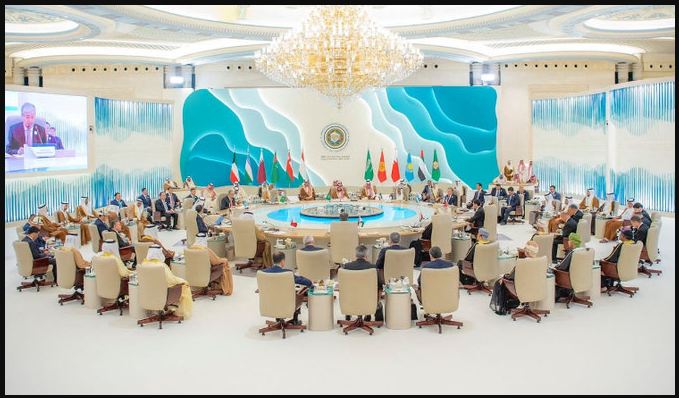Extensive Economic Cooperation between Arab Gulf States and Central Asian Republics Set to Boost Both Regions
Washington – A recent surge in economic cooperation between Arab Gulf states and Central Asian republics is poised to strengthen economies in both regions and unlock new avenues of cooperation and economic ties. This was the consensus among experts participating in a panel discussion titled “Gulf States, Central Asia, and the South Caucasus: Is an unprecedented push for economic integration underway?” organized by the Washington-based Middle East Institute.
In July, Saudi Arabia hosted a landmark summit that marked the first collective meeting between the Gulf Cooperation Council (GCC) member states – Saudi Arabia, the UAE, Bahrain, Qatar, Kuwait, and Oman – and the C5 group of Central Asian nations – Uzbekistan, Turkmenistan, Tajikistan, Kyrgyzstan, and Kazakhstan. The summit aimed to bolster trade and economic cooperation between the two regions.
Akbota Zholdasbekova, an associate professor of international relations at L.N. Gumilyov Eurasian National University in Kazakhstan, highlighted that Saudi Arabia and the UAE are leading the Gulf states in terms of investment in energy-rich Central Asia. These investments are part of their efforts to diversify investment portfolios and tap into new export markets. Zholdasbekova emphasized that such investments benefit Central Asian countries by stimulating economic growth and creating opportunities for bilateral trade and investment. Saudi Arabia and the UAE have already made substantial investments in energy companies in Kazakhstan and other countries in the region.
In June, Saudi Arabia and Kazakhstan agreed to establish a framework for cooperation in the energy sector, aligning with the Kingdom’s global energy partnership strategy. The agreement encompasses collaboration in petroleum, gas, refining, petrochemicals, electricity, and renewable energy.
Mohammed Al-Sulami, the head of Rasanah, the International Institute for Iranian Studies in Riyadh, highlighted the similarities between the Gulf states and Central Asian states, underscoring that as Gulf nations pursue economic opportunities, they are recognizing the potential of Central Asian states as valuable partners with shared values and objectives. Al-Sulami added that Gulf countries are keen on investments in agriculture, supply-chain projects, and skilled labor, areas where Central Asian markets excel.
Al-Sulami also noted that Gulf states have refrained from taking sides in the Russia-Ukraine conflict, despite pressure from the United States and Europe. He stated, “The policy in the Gulf states today is that we want to be a bridge… without the burden of having to take sides.”
Fariz Ismailzade from ADA University in Baku highlighted Azerbaijan’s shift in focus from Europe to the Gulf region for trade and bilateral ties. He noted that Azerbaijan now perceives the Gulf region as more valuable and, therefore, seeks economic growth and development opportunities within its neighborhood. Ismailzade mentioned a substantial increase in trade between Azerbaijan and Gulf states over the past five years, indicating a growing strategic partnership due to valuable investment, tourism, and economic growth potential.
Ismailzade further highlighted Azerbaijan’s significant contracts with ACWA and Masdar, energy companies from Saudi Arabia and the UAE respectively. These investments pave the way for Azerbaijan to export clean and renewable energy to Europe, fostering economic growth within the country.
The recent wave of economic cooperation between Arab Gulf states and Central Asian republics signifies a promising chapter for both regions. The strengthened ties and increased collaboration hold the potential to drive economic growth, diversify investment portfolios, and contribute to the prosperity of nations involved.



